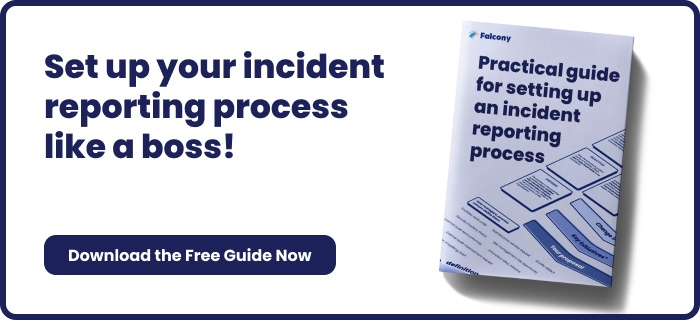8 Loss Prevention Risks for the Chemical and Petrochemical Industry
The chemical and petrochemical industry faces various risks that can result in financial losses, operational disruptions, and safety incidents. Loss prevention is crucial for mitigating these risks and safeguarding assets, personnel, and the environment. Let's explore eight key loss prevention risks commonly encountered in the chemical and petrochemical sector and discuss strategies for mitigating them effectively.
Equipment Failure
Equipment failure poses a significant risk in the chemical and petrochemical industry, where complex machinery and process equipment are integral to operations. Mechanical failures, corrosion, and wear and tear can lead to unplanned downtime, production losses, and costly repairs. Implementing robust preventive maintenance programs, condition monitoring, and equipment reliability strategies can help mitigate the risk of equipment failure.
Process Safety Incidents
Process safety incidents such as chemical spills, releases, or explosions pose severe risks to personnel, facilities, and the surrounding environment. Factors such as equipment malfunctions, human error, and process deviations can trigger process safety incidents with devastating consequences. Conducting thorough process hazard analyses (PHA), implementing safety instrumented systems (SIS), and providing comprehensive process safety training are essential for preventing process safety incidents.
Environmental Contamination
Environmental contamination resulting from chemical spills, leaks, or improper waste disposal can lead to regulatory violations, environmental cleanup costs, and reputational damage. Inadequate containment measures, storage tank failures, or transportation accidents can result in soil and water contamination, ecological harm, and legal liabilities. Implementing stringent environmental management practices, spill prevention measures, and emergency response protocols can help prevent environmental contamination.
Supply Chain Disruptions
Supply chain disruptions, such as raw material shortages, transportation delays, or supplier issues, can disrupt production schedules and impact product availability. Reliance on a complex network of suppliers and logistical challenges can expose chemical and petrochemical companies to supply chain risks. Developing contingency plans, diversifying supply sources, and maintaining strategic inventories can mitigate the impact of supply chain disruptions.
Regulatory Compliance Failures
Regulatory compliance failures can result in fines, penalties, legal liabilities, and reputational damage for chemical and petrochemical companies. Non-compliance with environmental regulations, safety standards, or product quality requirements can lead to enforcement actions and loss of operating licenses. Establishing robust regulatory compliance programs, conducting regular audits, and staying abreast of regulatory changes are essential for maintaining compliance and minimizing regulatory risks.
Cybersecurity Threats
Cybersecurity threats such as data breaches, ransomware attacks, or industrial espionage pose a growing risk to the chemical and petrochemical industry's operational continuity and data security. Critical infrastructure systems, control networks, and sensitive data are vulnerable to cyber threats, which can disrupt operations, compromise safety systems, and steal intellectual property. Implementing robust cybersecurity measures, conducting regular vulnerability assessments, and providing cybersecurity training to personnel are critical for mitigating cybersecurity risks.
Human Error
Human error is a common risk factor in the chemical and petrochemical industry, where complex processes and hazardous materials require strict adherence to procedures and protocols. Operator errors, inadequate training, and complacency can lead to accidents, spills, and quality deviations. Investing in comprehensive training programs, implementing procedural controls, and fostering a safety-conscious culture can help reduce the likelihood of human error.
Natural Disasters
Natural disasters such as hurricanes, earthquakes, floods, or wildfires pose significant risks to chemical and petrochemical facilities, particularly those located in disaster-prone regions. These events can cause facility damage, power outages, and supply chain disruptions, leading to production losses and safety hazards. Developing robust emergency response plans, enhancing facility resilience, and implementing disaster preparedness measures can help mitigate the impact of natural disasters.
Conclusion
Addressing loss prevention risks in the chemical and petrochemical industry requires a comprehensive approach that encompasses proactive risk management, operational excellence, and a strong safety culture. By identifying and mitigating key risks such as equipment failure, process safety incidents, environmental contamination, supply chain disruptions, regulatory compliance failures, cybersecurity threats, human error, and natural disasters, organizations can enhance their resilience, protect their assets, and ensure sustainable operations in a challenging and dynamic industry landscape.
If you're looking to implement a mobile tool for your audits, we've got you covered. Falcony | Audit is easy-to-use, fast to set up, has customisable workflows, vast integration possibilities and more. Contact us for more information.
We are building the world's first operational involvement platform. Our mission is to make the process of finding, sharing, fixing and learning from issues and observations as easy as thinking about them and as rewarding as being remembered for them.
By doing this, we are making work more meaningful for all parties involved.
More information at falcony.io.

Related posts
9 Typical Loss Prevention Risks in the Maritime Industry
Loss prevention is well-established practice in the maritime industry, where vessels,...
8 Loss Prevention Risks in Aviation and Aerospace
Loss prevention is a critical aspect of risk management in the aviation and aerospace...
7 Critical Loss Prevention Risks in the Oil and Gas Industry
In the oil and gas industry, loss prevention is crucial due to the complex and high-stakes nature...





